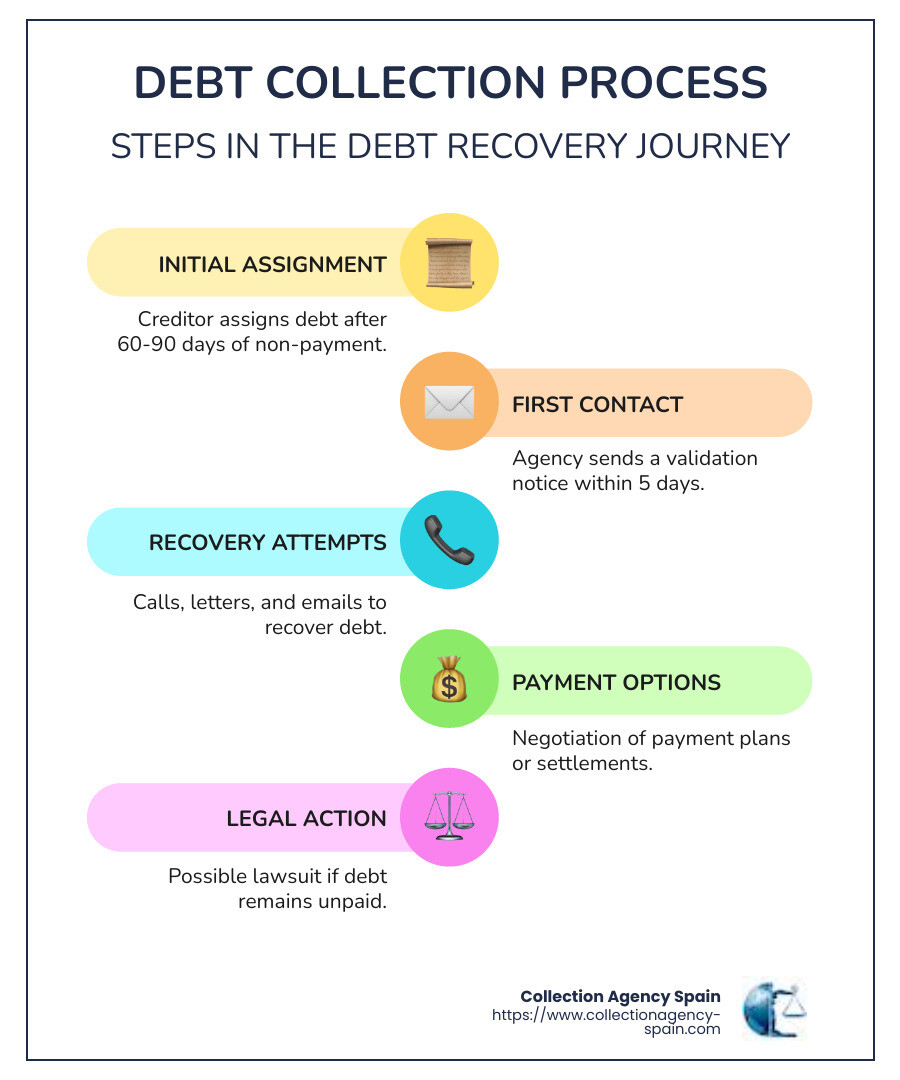


A debt collection agency is a specialised firm that recovers unpaid debts on behalf of creditors. In Spain, these agencies operate under a regulated framework that determines what they can and cannot do — and the best ones recover significantly more than creditors manage through internal efforts alone. The typical improvement factor is three to one.
Professional agencies in Spain operate on a two-stage model. The amicable phase begins immediately upon receiving your case: the agency sends formal demands via burofax, initiates direct debtor communication, investigates the debtor's financial position, and negotiates payment solutions. This phase typically lasts 30 to 90 days and resolves approximately 70% of B2B cases.
When amicable collection fails, the legal phase engages the agency's in-house or partnered legal team. They file the monitorio (payment order) for claims up to €250,000, manage court proceedings through procurador and abogado representation, and handle enforcement through embargo (asset seizure) procedures. A full-service agency manages both phases seamlessly — the transition from negotiation to litigation happens without you changing providers.
Most Spanish collection agencies work on a contingency or commission basis: you pay a percentage of the amount recovered, and nothing if recovery fails. Amicable collection fees typically range from 5% to 15%. Legal recovery fees range from 15% to 25%, plus court costs. Some agencies charge a modest upfront assessment fee that's credited against the commission if recovery succeeds.
This fee structure aligns the agency's interests with yours. They don't profit from prolonging the case — they profit from resolving it.
Licensing and regulatory compliance are non-negotiable. Beyond that, evaluate: does the agency have in-house legal capability or rely on external lawyers? Do they have physical presence in Spain with access to local courts? Can they demonstrate experience with cross-border cases involving creditors from your jurisdiction? Do they provide transparent reporting on every action taken?
A professional agency should be able to provide a realistic assessment of your case within 48 hours of receiving documentation, including an honest evaluation of the likelihood of recovery and the recommended strategy.
Internal credit teams handle routine overdue invoices effectively. An agency becomes essential when: the debt exceeds 60 days past due, the debtor is unresponsive to direct contact, you're collecting cross-border with no Spanish presence, or the debt requires legal proceedings. The cost of professional collection is almost always less than the cost of writing off the receivable.
Businesses often become known today through effective marketing. The marketing may be in the form of a regular news .
Contact Us